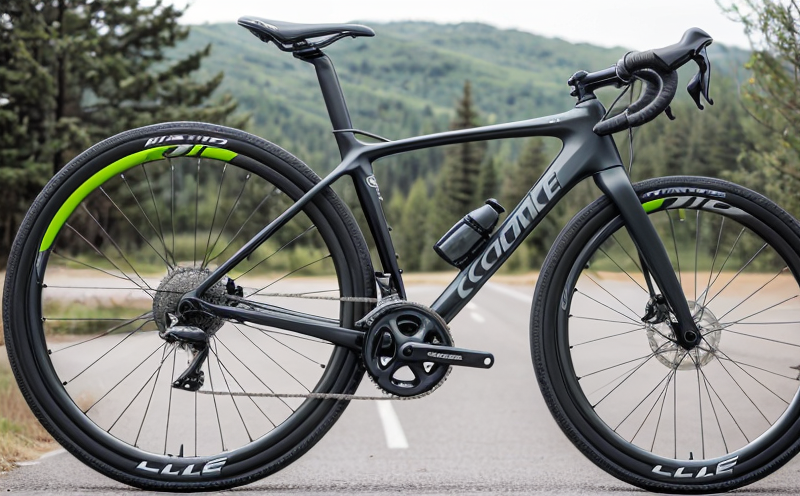ISO 12405-1 Cycle Life Testing of Lithium-Ion Battery Systems for HEV Applications
The ISO 12405-1 standard is a critical part of ensuring the reliability and durability of lithium-ion battery systems used in hybrid electric vehicles (HEVs). This testing procedure evaluates how these batteries perform under repeated charge-discharge cycles, which simulates real-world driving conditions. The primary goal is to assess the battery's capacity retention over time, thereby providing insights into its expected lifespan.
Lithium-ion batteries are essential components of HEVs because they offer high energy density and long cycle life compared to other battery technologies. However, their performance can degrade significantly if not properly tested. By adhering to ISO 12405-1, manufacturers ensure that their products meet stringent quality standards and are reliable for the intended application.
The testing process involves charging and discharging the batteries multiple times according to specified conditions outlined in the standard. This includes setting initial and final voltage limits, temperature control, current measurement, and monitoring of internal resistance changes. The number of cycles performed depends on the specific requirements set by the manufacturer or regulatory bodies. Typically, this ranges from 100 to over 500 cycles.
During testing, it's crucial to maintain accurate records of all parameters measured throughout each cycle. These include voltage levels at various stages of charging and discharging, temperature fluctuations within the battery pack, and any signs of degradation such as increased internal resistance or reduced capacity. Such detailed documentation allows for comprehensive analysis later on.
Once completed successfully, successful completion of ISO 12405-1 cycle life testing provides confidence that a lithium-ion battery system will maintain its performance over extended periods under demanding operating conditions typical of HEV usage. This certification is valuable not only for meeting regulatory requirements but also enhancing brand reputation and consumer trust.
To achieve optimal results from this type of testing, careful preparation is necessary before initiating the process. Proper specimen selection based on material properties and expected service life is paramount. Additionally, ensuring that all equipment used meets the specified accuracy levels ensures accurate measurement during every cycle.
Scope and Methodology
Scope: The scope of ISO 12405-1 covers the determination of the number of charge-discharge cycles required to reach a specified capacity retention level for lithium-ion battery systems intended for use in hybrid electric vehicles. It focuses on assessing how well these batteries maintain their energy storage capabilities over multiple recharging events.
| Parameters Measured | Description | Importance |
|---|---|---|
| Voltage Levels | The voltage at which the battery begins and ends each cycle. | To ensure safe operation and prevent overcharging or undercharging. |
| Temperature | The temperature of the battery during charging and discharging. | To avoid thermal runaway, which could damage the battery. |
| Internal Resistance | The resistance between the anode and cathode inside the battery cell. | Indicates potential for reduced performance due to internal losses. |
Methodology: To conduct ISO 12405-1 cycle life testing, batteries must be charged according to a predetermined protocol until they reach full capacity. Then, they are discharged down to a specified minimum voltage limit while simultaneously being recharged back up to the maximum voltage level. This cycle is repeated multiple times under controlled environmental conditions.
The test procedure specifies exact temperatures and durations for charging and discharging phases, ensuring consistency across all samples being tested. At regular intervals throughout each cycle, specific measurements are taken to monitor battery health parameters like internal resistance and temperature variations. These data points help determine whether the batteries meet the required capacity retention criteria after reaching the specified number of cycles.
Industry Applications
The application of ISO 12405-1 cycle life testing extends beyond just laboratory settings; it plays a vital role in ensuring that lithium-ion batteries used in HEVs perform reliably under real-world conditions. Automakers rely heavily on this type of testing to validate their designs and ensure compliance with relevant regulations.
By incorporating ISO 12405-1 into their development processes, manufacturers can identify any weaknesses early on in the design phase so that necessary adjustments can be made before production begins. This proactive approach helps reduce costs associated with post-production recalls or warranty claims due to premature failure of batteries.
| Application | Description | Benefit |
|---|---|---|
| Automobile Manufacturers | Testing battery systems for HEVs to ensure they meet durability requirements specified by OEMs and regulatory bodies. | Enhances consumer confidence in the quality of vehicles produced using these batteries. |
| Regulatory Bodies | Evaluating whether batteries comply with safety standards before allowing them into commercial use. | Safeguards public safety by preventing defective products from reaching consumers. |
Besides automobile manufacturers and regulatory bodies, other entities such as suppliers of battery materials or components may also benefit from this testing. They can use the results to fine-tune their manufacturing processes, leading to improved product quality and efficiency.
Eurolab Advantages
At Eurolab, we pride ourselves on delivering accurate, reliable, and repeatable cycle life testing services for lithium-ion batteries according to ISO 12405-1 standards. Our state-of-the-art facilities equipped with the latest instrumentation ensure precise control over all aspects of the test environment.
We employ highly skilled technicians who are well-versed in both theoretical knowledge and practical experience regarding battery technology. Their expertise allows us to provide personalized advice tailored specifically to your needs, helping you optimize your testing protocols for maximum efficiency.
In addition to our technical capabilities, Eurolab offers several additional advantages:
- Comprehensive Reporting:
- Detailed Analysis:
Our comprehensive reports summarize all key findings from the tests conducted, providing clear interpretations supported by graphical representations of data collected during each cycle. Detailed analyses include discussions on observed trends in battery performance parameters over time.
We understand that every customer has unique requirements when it comes to testing lithium-ion batteries for HEV applications. That's why we strive to offer flexible solutions that cater specifically to those needs, whether you require a one-time test or ongoing support throughout your project lifecycle.





